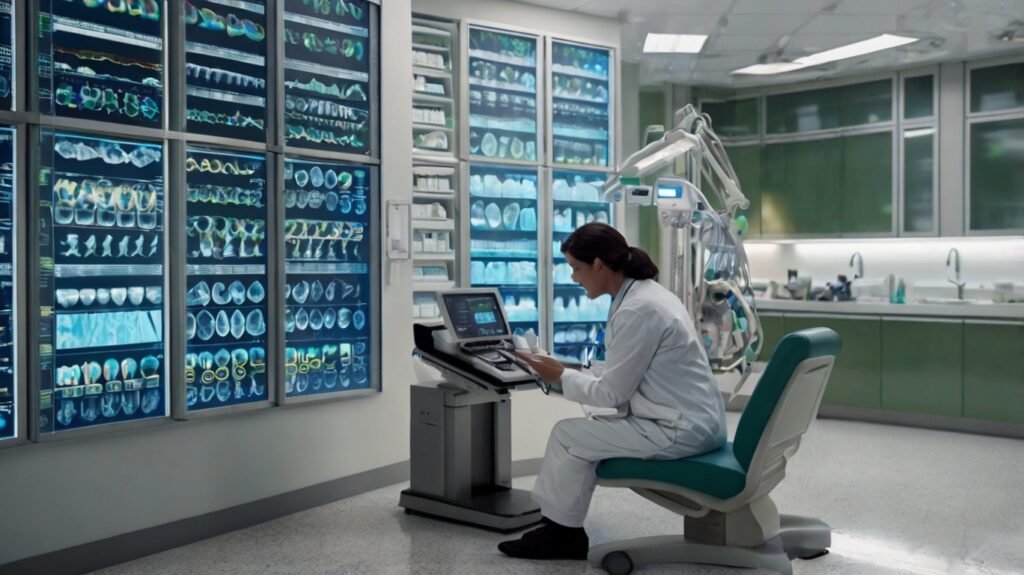Introduction:
In recent decades, the field of medicine has evolved significantly, driven by technological advancements and a deeper understanding of human biology. At the forefront of this evolution is Personalized Medicine—a groundbreaking approach that customizes medical treatment to the individual characteristics of each patient. This model moves beyond the traditional one-size-fits-all methodology, offering a more tailored and effective approach to healthcare. This comprehensive article explores the principles, advancements, benefits, challenges, and future potential of Personalized Medicine, providing an in-depth look at how this innovative field is reshaping the landscape of healthcare. Click here
“Historical Context and Evolution”
Early Concepts of Personalized Medicine:
This is not a particularly new concept in medicine. Ancient medical practices often considered individual differences, such as Hippocratic medicine, which emphasized the balance of bodily humors tailored to the individual’s constitution. However, the modern conception of Personalized Medicine has gained prominence due to advances in genetics, technology, and data science.
The Human Genome Project:
A pivotal moment in the evolution of Personalized Medicine was the completion of the Human Genome Project (HGP) in 2003. The HGP was an international research initiative that successfully mapped the entire human genome, providing a comprehensive reference for understanding genetic variations. This monumental achievement laid the foundation for the development of personalized approaches by elucidating the genetic basis of many diseases and paving the way for targeted interventions.
From Genomics to Personalized Medicine:
The transition from genomics to Personalized Medicine involved translating genetic insights into practical applications. The emergence of high-throughput sequencing technologies and advances in bioinformatics enabled researchers and clinicians to analyze genetic data more efficiently. This shift allowed for the development of targeted therapies, predictive genetic tests, and personalized treatment strategies, marking a significant departure from traditional, generalized medical approaches.
“Key Principles of Personalized Medicine”
Genetic and Genomic Information:
The original working definition of Personalized Medicine is treatment designed considering genetic and genomic information that tailors medical care. Understanding how genetic variations influence health and disease enables clinicians to develop more precise treatment plans.
Genetic Testing:
Genetic testing is the process of examining a person’s DNA for predisposing changes in their genes. This can include:
- Predictive Testing: Assessing an individual’s risk for developing certain diseases based on their genetic profile. For example, BRCA1 and BRCA2 gene mutations are associated with an increased risk of breast and ovarian cancer.
- Diagnostic Testing: Confirming or ruling out genetic disorders based on symptoms and family history. For instance, testing for cystic fibrosis mutations can help diagnose the condition in symptomatic individuals.
- Pharmacogenomic Testing: Evaluating how an individual’s genetic makeup affects their response to medications. This information helps further to optimize medication choices and dosages to achieve maximum effectiveness with a minimum of side effects.
Genomic Sequencing Technologies:
Advancements in genomic sequencing technologies have revolutionized the field of Personalized Medicine. Key technologies include:
- Next-Generation Sequencing (NGS): A high-throughput method that allows for the rapid and cost-effective sequencing of entire genomes, exomes, or targeted gene panels. NGS has made it possible to identify genetic variants associated with various diseases and develop targeted therapies.
- Whole Genome Sequencing (WGS): Sequencing an individual’s entire genome to provide a comprehensive view of their genetic makeup. WGS can uncover rare genetic variants that may be missed with other sequencing approaches.
- Whole Exome Sequencing (WES): Focusing on the coding regions of the genome (exomes), WES provides valuable information about genes associated with disease while reducing data complexity compared to WGS.
Lifestyle and Environmental Factors:
While genetics plays a significant role, Personalized Medicine also considers lifestyle and environmental factors. Integrating these elements provides a more holistic view of an individual’s health.
Diet and Nutrition:
Personalized dietary recommendations are based on genetic and metabolic profiles. For example, individuals with certain genetic variants may have specific nutritional needs or be more prone to conditions like obesity or diabetes. Nutritional plans could also be devised specifically for each person to help optimize health and minimize disease risk.
Physical Activity:
Genetic variations can influence how an individual responds to different types of exercise. Personalized fitness programs take into account genetic predispositions, such as muscle fiber composition or cardiovascular efficiency, to create tailored workout plans that enhance performance and health outcomes.
Environmental Exposures:
Environmental factors, such as pollution, toxins, and lifestyle choices, can impact health and disease risk. Personalized Medicine considers these factors when developing preventive strategies and treatment plans. For example, there are individuals with genetic susceptibility to environmental toxins; such individuals stand to benefit from certain interventions that reduce risks.
Biomarkers:
Biomarkers are measurable indicators of biological processes or responses to treatments. Their role in Personalized Medicine is described below:
- Diagnosing Diseases: Identifying specific biomarkers associated with diseases, such as prostate-specific antigen (PSA) for prostate cancer or alpha-fetoprotein (AFP) for liver cancer.
- Monitoring Treatment Response: Tracking changes in biomarker levels to assess how well a treatment is working. For example, measuring blood glucose levels in diabetes management.
- Predicting Outcomes: Using biomarker profiles to predict disease progression and patient outcomes. For example, measuring tumor markers to estimate cancer prognosis.
“Advancements in Personalized Medicine”
Genomic Research and Sequencing:
The field of genomics has seen rapid advancements, significantly impacting Personalized Medicine:
Advances in Sequencing Technologies:
- Single-Cell Sequencing: Analyzing the genome, transcriptome, and epigenome of individual cells to understand cellular heterogeneity and disease mechanisms. This technology is particularly useful in cancer research and development of targeted therapies.
- Epigenomics: Studying the epigenetic modifications that regulate gene expression without altering the DNA sequence. Epigenetic changes can influence disease development and treatment response, offering new avenues for personalized interventions.
Integration of Multi-Omics Data:
Combining data from genomics, proteomics (study of proteins), metabolomics (study of metabolites), and other omics fields provides a more comprehensive understanding of health and disease. This holistic approach enables:
- Comprehensive Patient Profiles: Creating detailed profiles that encompass genetic, proteomic, and metabolic information to guide personalized treatment plans.
- Identifying New Biomarkers: Discovering novel biomarkers by integrating data from multiple omics layers, leading to improved disease diagnosis and treatment.
- Predictive Modeling: Developing predictive models based on multi-omics data to forecast disease risk and treatment outcomes.
Pharmacogenomics:
Pharmacogenomics has made significant strides, enhancing the personalization of drug therapies:
Drug Efficacy:
Understanding how genetic variations affect drug metabolism and efficacy helps in selecting the most appropriate medications. For example:
- Warfarin: Genetic testing for CYP2C19 and VKORC1 gene variants can guide warfarin dosing to prevent blood clots while minimizing the risk of bleeding complications.
- Tamoxifen: Testing for the CYP2D6 gene variant can help determine the effectiveness of tamoxifen in breast cancer treatment, as certain variants can affect drug metabolism.
Adverse Drug Reactions:
Pharmacogenomics helps identify individuals at risk for adverse drug reactions:
- Allopurinol: Genetic testing for the HLA-B*5801 allele can predict the risk of severe skin reactions, such as Stevens-Johnson syndrome, in patients taking allopurinol for gout.
- Clopidogrel: Variants in the CYP2C19 gene can affect the efficacy of clopidogrel, a medication used to prevent blood clots, leading to personalized dosing recommendations.
Dosage Optimization:
Genetic information helps determine the optimal drug dosage for individuals, improving treatment outcomes and minimizing side effects:
- Tacrolimus: Genetic testing for the CYP3A5 gene can guide dosing of tacrolimus, an immunosuppressant used in organ transplantation, to achieve therapeutic levels and avoid toxicity.
“Artificial Intelligence and Big Data”
Artificial Intelligence (AI) and Big Data have revolutionized Personalized Medicine by enabling:
Predictive Analytics:
AI algorithms analyze large datasets to predict disease risk, treatment responses, and health outcomes. For example:
- Risk Prediction Models: AI models can integrate genetic, clinical, and lifestyle data to predict the likelihood of developing conditions such as cardiovascular disease or diabetes.
- Treatment Response Prediction: AI can predict how patients will respond to specific treatments based on their genetic and health profiles, allowing for more personalized and effective interventions.
Data Integration:
Integrating data from various sources, such as electronic health records (EHRs), genetic databases, and wearable devices, creates comprehensive patient profiles. This integration enables:
- Holistic Care: A complete view of an individual’s health status, allowing for more informed treatment decisions and personalized care plans.
- Precision Medicine Platforms: Developing platforms that aggregate and analyze multi-modal data to support personalized treatment and research efforts.
Clinical Decision Support:
AI-driven tools provide healthcare professionals with evidence-based recommendations for personalized care:
- Decision Support Systems: AI algorithms can assist in diagnosing diseases, selecting appropriate treatments, and monitoring patient progress.
- Personalized Treatment Recommendations: AI tools can generate personalized treatment plans based on individual patient data, optimizing therapeutic outcomes.
Personalized Vaccines:
Personalized vaccines represent an emerging field with the potential to enhance disease prevention:
Individualized Vaccine Development:
Personalized vaccines are tailored to an individual’s genetic profile or specific disease risk:
- Cancer Vaccines: Developing vaccines that target tumor-specific antigens based on an individual’s unique cancer profile. For example, personalized cancer vaccines aim to stimulate the immune system to recognize and attack cancer cells.
- Infectious Disease Vaccines: Creating vaccines that account for genetic variations affecting immune responses, potentially improving vaccine efficacy and safety.
Personalized Vaccine Strategies:
- Neoantigen Vaccines: Targeting novel antigens that arise from tumor-specific mutations, providing a personalized approach to cancer immunotherapy.
- Therapeutic Vaccines: Developing vaccines to treat existing infections or diseases by stimulating a tailored immune response based on individual characteristics.
“Benefits of Personalized Medicine”
Improved Treatment Efficacy:
Personalized Medicine enhances treatment efficacy by:
Tailoring Therapies:
Customized treatments based on genetic and health profiles lead to:
- Targeted Interventions: Therapies designed to address the specific underlying causes of diseases, resulting in more effective treatments.
- Precision Dosing: Adjusting drug dosages based on genetic information to achieve optimal therapeutic effects while minimizing side effects.
Optimizing Drug Choices:
Personalized Medicine helps in selecting medications that are most likely to be effective for an individual:
- Genetic Profiling: Identifying genetic variations that influence drug response, leading to the selection of the most appropriate medication.
- Pharmacogenomic Insights: Using pharmacogenomic data to guide drug choices and dosages, improving treatment outcomes.
Reduced Adverse Drug Reactions:
Personalized Medicine reduces the risk of adverse drug reactions by:
Identifying Risk Factors:
Genetic testing identifies individuals at risk for adverse reactions to specific medications:
- Preemptive Testing: Conducting genetic tests before prescribing medications to avoid potential adverse effects.
- Safety Measures: Implementing strategies to minimize the risk of adverse reactions based on genetic profiles.
Personalizing Dosages:
Adjusting drug dosages based on genetic information helps:
- Optimize Efficacy: Ensuring that patients receive the appropriate dosage for their genetic profile, maximizing therapeutic benefits.
- Minimize Side Effects: Reducing the risk of adverse effects by tailoring dosages to individual genetic characteristics.
Enhanced Disease Prevention:
Personalized Medicine enables proactive disease prevention through:
Genetic Risk Assessment:
Assessing genetic risk factors helps in:
- Early Detection: Identifying individuals at higher risk for diseases such as cancer or cardiovascular conditions, allowing for early intervention.
- Preventive Measures: Implementing lifestyle changes or preventive treatments based on genetic risk assessments.
Customized Screening:
Personalized screening programs are designed based on:
- Genetic Profiles: Tailoring screening protocols to individual genetic risk factors, improving early detection and management of diseases.
- Risk Stratification: Categorizing patients based on their genetic and health profiles to determine the most appropriate screening strategies.
“Optimized Drug Development”
Personalized Medicine accelerates and optimizes drug development by:
Targeting Specific Populations:
Developing drugs for specific genetic subpopulations or disease subtypes enhances:
- Drug Efficacy: Creating targeted therapies that address the unique needs of specific patient groups.
- Clinical Trial Success: Reducing the risk of clinical trial failures by selecting participants based on genetic criteria.
Reducing Clinical Trial Failures:
Pharmacogenomic data helps:
- Candidate Selection: Identifying suitable candidates for clinical trials based on their genetic profiles, increasing the likelihood of successful outcomes.
- Optimizing Trial Design: Designing trials that account for genetic variability and targeting specific patient subgroups.
“Challenges and Considerations”
Data Privacy and Security:
The collection and use of personal health data in Personalized Medicine raise important privacy and security concerns:
Confidentiality:
Protecting sensitive genetic and health information is crucial:
- Data Security: Implementing robust security measures to safeguard genetic and health data from unauthorized access or breaches.
- Privacy Regulations: Adhering to privacy regulations such as GDPR and HIPAA to ensure compliance with data protection standards.
Data Sharing:
Balancing the need for data sharing in research with privacy concerns:
- Ethical Data Use: Ensuring that data is used responsibly and ethically, with appropriate consent and safeguards in place.
- Research Collaboration: Facilitating data sharing for research purposes while protecting individual privacy.
Accessibility and Equity:
Ensuring equitable access to Personalized Medicine is done through the following:
Socioeconomic Disparities:
Addressing socioeconomic barriers to access:
- Healthcare Costs: Reducing the financial burden of personalized treatments and genetic testing for underserved populations.
- Insurance Coverage: Expanding insurance coverage to include personalized medicine services and genetic testing.
Geographic Barriers:
Overcoming geographic disparities in access to personalized healthcare:
- Healthcare Infrastructure: Improving access to personalized medicine services in underserved or remote areas.
- Telemedicine: Utilizing telemedicine platforms to provide personalized care and genetic counseling remotely.
Health Literacy:
Enhancing health literacy to ensure informed decision-making:
- Patient Education: Providing clear and accessible information about personalized medicine and genetic testing.
- Support Services: Providing support and counseling to the patients, enabling them to understand and navigate personalized treatment options.
Ethical and Legal Issues:
Personalized Medicine raises various ethical and legal considerations:
Genetic Discrimination:
Concerns about potential discrimination based on genetic information:
- Employment and Insurance: Addressing the risk of genetic discrimination in employment and insurance practices.
- Legal Protections: Implementing legal safeguards to protect individuals from genetic discrimination.
Informed Consent:
Clear explanation of genetic implications to the patients:
- Clear Communication: Providing comprehensive information about the benefits, risks, and limitations of genetic tests and personalized treatments.
- Consent Processes: Implementing robust informed consent processes to ensure patient autonomy and understanding.
Data Ownership:
Addressing questions about data ownership and control:
- Patient Rights: Defining patient rights regarding the ownership and use of genetic and health data.
- Data Management: Developing policies for the management and sharing of genetic data in research and clinical settings.
Integration into Clinical Practice:
Implementing Personalized Medicine in clinical practice involves several challenges:
Technology Integration:
Integrating new technologies into existing healthcare infrastructure:
- Electronic Health Records (EHRs): Incorporating genetic and health data into EHR systems to support personalized care.
- Data Interoperability: Ensuring compatibility and integration of data from various sources and technologies.
Clinical Guidelines:
Developing and updating clinical guidelines to incorporate personalized approaches:
- Evidence-Based Practice: Ensuring that guidelines are based on the latest evidence and reflect advances in personalized medicine.
- Standardization: Establishing standards for the implementation of personalized medicine practices in clinical settings.
Healthcare Professional Training:
Providing training and education for healthcare professionals:
- Education Programs: Developing training programs to equip healthcare professionals with the knowledge and skills needed for personalized medicine.
- Continuing Education: Offering ongoing education opportunities to keep healthcare professionals informed about advances in personalized medicine.
“The Future of Personalized Medicine”
Advances in Genomic Editing:
Genomic editing technologies, such as CRISPR-Cas9, hold immense promise for the future of personalized medicine:
Correcting Genetic Mutations:
Editing genes to correct mutations associated with genetic disorders:
- Gene Therapy: Developing therapies to correct or replace faulty genes, potentially curing genetic diseases.
- Somatic vs. Germline Editing: Exploring the ethical and scientific implications of somatic (non-heritable) versus germline (heritable) genetic modifications.
Enhancing Gene Function:
Modifying genes to improve health outcomes or enhance therapeutic responses:
- Gene Editing for Health: Using genomic editing to enhance resistance to diseases or improve responses to treatments.
- Ethical Considerations: Addressing ethical questions related to gene editing, including potential long-term consequences and unintended effects.
“Expansion of Personalized Cancer Therapy”
Personalized approaches to cancer therapy are rapidly advancing:
Targeted Therapies:
Developing drugs that target specific genetic mutations or cancer subtypes:
- Targeted Agents: Creating therapies that specifically target genetic alterations in cancer cells, such as tyrosine kinase inhibitors for specific mutations.
- Combination Therapies: Using targeted therapies in combination with other treatments to enhance efficacy and overcome resistance.
Immunotherapy:
Expanding the use of immunotherapy approaches:
- CAR-T Cell Therapy: Engineering patients’ T cells to recognize and attack cancer cells, with ongoing advancements in targeting different cancers.
- Checkpoint Inhibitors: Developing inhibitors that block immune checkpoints to enhance the immune system’s ability to fight cancer.
Liquid Biopsies:
Using non-invasive liquid biopsies to monitor cancer:
- Tumor DNA Analysis: Detecting tumor-derived DNA in blood samples to monitor disease progression and treatment response.
- Early Detection: Improving early detection and monitoring of cancer through liquid biopsy technologies.
Integration of Omics Data:
The integration of various omics data will provide a more comprehensive understanding of health and disease:
Holistic Profiles:
Creating detailed patient profiles by combining data from multiple omics layers:
- Genomic, Proteomic, and Metabolomic Data: Integrating data from genomics, proteomics, and metabolomics to create comprehensive health profiles.
- Personalized Treatment Plans: Developing treatment plans based on a holistic understanding of molecular and physiological factors.
Research Advancements:
Driving research efforts to uncover new biomarkers and therapeutic targets:
- Discovery of New Biomarkers: Identifying novel biomarkers through multi-omics research to improve disease diagnosis and treatment.
- Precision Research: Conducting research that focuses on specific genetic and molecular subtypes to advance personalized medicine.
Personalized Health Monitoring:
Advancements in wearable technologies and digital health tools are enabling continuous health monitoring:
Real-Time Data Collection:
Using wearable devices and digital tools to collect real-time health data:
- Vital Signs Monitoring: Tracking vital signs, such as heart rate and blood pressure, to provide insights into health status and treatment response.
- Activity and Sleep Tracking: Monitoring physical activity and sleep patterns to inform personalized health recommendations.
Predictive Analytics:
Utilizing data from wearable devices to predict health issues:
- Early Intervention: Identifying early warning signs of health problems and providing timely interventions based on predictive analytics.
- Personalized Feedback: Offering personalized feedback and recommendations based on real-time health data.
Patient Engagement:
Enhancing patient engagement and self-management through digital health tools:
- Mobile Health Apps: Providing tools for patients to track their health, access personalized recommendations, and engage with their care team.
- Remote Monitoring: Enabling remote monitoring and virtual consultations to support personalized care and improve access to healthcare services.
Conclusion:
Personalized Medicine represents a transformative shift in healthcare, offering the potential to enhance treatment efficacy, reduce adverse effects, and improve overall health outcomes. By integrating advancements in genomics, technology, and data science, Personalized Medicine is paving the way for a more precise, individualized approach to healthcare.
As we continue to explore the possibilities and address the challenges associated with Personalized Medicine, it is crucial to prioritize ethical considerations, ensure equitable access, and integrate new technologies into clinical practice. The future of Personalized Medicine holds exciting opportunities for innovation and improvement in patient care, with the potential to revolutionize how we approach health and disease.
In embracing the principles of Personalized Medicine, we move closer to a future where healthcare is not only more effective but also more aligned with the unique needs and characteristics of each individual. The journey toward personalized healthcare is ongoing, marked by both significant advancements and challenges, and it promises to reshape the landscape of medicine in the years to come.







